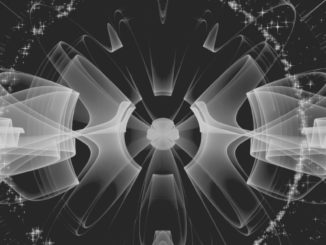
Here at The Next Platform we are still casting a wary eye on how quantum computing will fit into the post-Moore landscape, especially in large-scale research and enterprise contexts. However, this week yielded several announcements that highlight the practical applications are starting to come together—at least via more development partnerships.
In the span of just this mid-September week, there were several new collaborative efforts aiming to develop and harness the potential of quantum technologies. Among the noteworthy developments are infrastructure building between Xanadu and KISTI, QI Solutions and USSOCOM, and Rigetti Computing and the Air Force Research Lab. At the end of last week we also picked up on a similar hybrid infrastructure project at the Jülich Supercomputing Centre with NVIDIA and ParTec.
There are few common threads between the announcements, but let’s look at the big three from this week:
Quantum-Classical Hybrid Computing Infrastructure
The collaboration between Canadian quantum computing company Xanadu and South Korea’s Korea Institute of Science and Technology Information (KISTI) marks the development of South Korea’s first quantum-classical hybrid computing infrastructure. This project is intended to integrate classical and quantum hardware platforms through the development of a quantum-classical hybrid circuit software development kit (SDK) which would serve as the backend infrastructure to KISTI’s cloud service.
Xanadu’s PennyLane, an open-source software library, and the Lightning quantum simulator constitute the foundational tools for this SDK. This collaboration aims to bolster South Korea’s quantum projects which have been actively pursued by KISTI since 1962, enhancing the capabilities of South Korean researchers in leveraging both classical and quantum computing technologies.
And while it didn’t quite make the “this-week” cutoff, on September 15, Nvidia ParTec, and the Jülich Supercomputing Centre (JSC) are collaborating to initiate a new laboratory. Situated within the premises of JSC and functioning as part of the Jülich Unified Infrastructure for Quantum Computing (JUNIQ), this new lab will be instrumental in running high-performance and low-latency quantum-classical computing workloads, utilizing the potent NVIDIA quantum computing platform as the backbone.
Presently, JUNIQ incorporates the substantial capabilities of the JUWELS booster system with its 3,744 Nvidia A100 Tensor Core accelerators for performing intricate simulations. Through the open-source CUDA Quantum programming model and Nvidia’s own cuQuantum software development kit, the platform facilitates seamless integration of quantum and classical computing, providing a rich environment for top-tier simulations.
As the project progresses, JSC intends to employ the NVIDIA CUDA Quantum programming model to integrate quantum processors into the modular Jülich Exascale supercomputing architecture.
Defense and Quantum Technology Applications
QI Solutions, a subsidiary of Quantum Computing Inc. (QCi), inked a five-year Cooperative Research and Development Agreement (CRADA) with the U.S. Special Operations Command (USSOCOM). This collaboration intends to develop quantum technologies supportive of USSOCOM programs and requirements. QI Solutions brings to the table a portfolio of quantum technology including sensors, computing, communications, cryptography, and advanced microchip solutions. The initiative underscores the potential of advanced quantum solutions in addressing critical challenges in national defense and security.
Quantum Foundry Services
Rigetti Computing has been awarded a five-year contract with the Air Force Research Lab (AFRL) to supply quantum foundry services. The contract facilitates the utilization of Rigetti’s manufacturing and fabrication capabilities to develop customized quantum systems, including quantum integrated circuits, cryogenic microwave components, and 9Q QPUs. This agreement is expected to foster advancements in quantum networking hardware research and development, thereby fueling further innovations in quantum computing technology.
The focus across each of these is on tangible advancements and applications. The partnership between Xanadu and KISTI is poised to bolster the quantum-classical hybrid computing infrastructure in South Korea, facilitating seamless integration of diverse hardware platforms through a robust SDK based on PennyLane and Lightning. Simultaneously, the alliance of QI Solutions with USSOCOM signifies an emphasis on developing quantum technologies specifically aimed at enhancing national security and defense capabilities, with a concentration on quantum photonic sensors and advanced microchip solutions.
Furthermore, Rigetti Computing’s contract with AFRL marks a concerted effort to further quantum networking hardware research, leveraging their existing fabrication capabilities to innovate in the realm of quantum integrated circuits and cryogenic components.
It’s still early days, but we might be starting to see a phase of accelerated growth and application in the quantum areas.





I wonder (however casually) whether Rigetti’s 9-qubit QPUs are so-designed to integrate Shor’s (Peter W.) eponymous quantum error correction codes — to prevent qubits from sinking into the Bloch ball (saving us all from the decoherent mixed-state noise of 80’s hardcore punk quantum mosh pits, now that we are old and slow (and grumpy?)!). 8^p
I’d be remiss no to mention here UMCP’s grand opening of the National Quantum Lab (QLab) yesterday and today — building on decades of former colleague’s research, inaugurated 09/20/23 by President Pines (cool as a Neville Brother!) and several notorious (B.i.G.) Marylanders! A great day for College Park — Go Terps! (https://today.umd.edu/umd-celebrates-grand-opening-of-quantum-computing-research-hub)